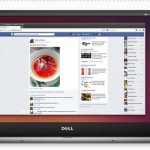Microsoft releases open source CentOS-based 'Linux Data Science Virtual Machine' for Azure

Microsoft is both an open source and Linux champion nowadays -- on the surface at least (pun intended). In other words, while it does embrace those things, we may not know the motivation of the Windows-maker regarding them. Regardless, Linux and open source are now important to the Redmond company.
Today, Microsoft announces a CentOS-based VM image for Azure called 'Linux Data Science Virtual Machine'. The VM has pre-installed tools such as Anaconda Python Distribution, Computational Network Toolkit, and Microsoft R Open. It focuses on machine learning and analytics, making it a great choice for data scientists.
Linux can still beat Windows in the desktop war, and Linus Torvalds is 'working on it'

About a year ago, I declared Windows 10 was "the final nail in the coffin for the Linux desktop". What I meant by this was not that Linux on the desktop was really dead, but that the Linux community had failed to capitalize on the negative sentiment towards Windows 8x. What I didn't expect at the time, however, was Microsoft's privacy faux pas with Windows 10. While there are more than a quarter billion installs of the latest operating system, plenty of folks have serious concerns about spying.
Maybe Linux has a chance on the desktop after all. Ubuntu is being integrated into Windows 10, and Android seems to be headed towards the desktop. In other words, Linux is making significant moves. Heck, even Linus Torvalds is prepared to keep fighting the good fight, and he declares that he is still "working on it".
Get a Red Hat Enterprise Linux license totally free -- here's how

While many people use the old cliché that nothing in life is free, that isn't always true. Are there often strings attached? Absolutely. With Gmail, Google combs through your communications for targeted advertising. Microsoft's Windows 10 is a free upgrade for many, but it has more strings than a gross of violins -- from a privacy standpoint, that is.
In the world of open source, however, free sometimes really means free. Today, Red Hat -- fresh from celebrating a historic $2 billion in annual revenue -- releases a developer-focused gift to the world. The Red Hat Enterprise Linux Developer Suite is totally free, including a RHEL license and valuable developer tools, like the JBoss Middleware portfolio. This is through the Red Hat Developer Program.
Microsoft and Canonical bring Ubuntu Linux binaries and Bash Shell to Windows 10

Well folks, today we witness history. For the longest time, Microsoft and the Linux community have been like Ford and Chevy, or Coke and Pepsi -- bitter rivals. Users have often chosen a side, and then hated the other. Of course, Windows has many more followers on the desktop -- Linux is largely insignificant in that regard. Mobile and servers are a different story, but I digress.
Today, pigs must be flying, as Microsoft does the unthinkable, and brings Ubuntu binaries and Bash Shell to Windows 10. Steve Ballmer would be rolling in his grave -- if he were dead, that is.
Two key challenges of using open source in the enterprise

A myriad point-tools are involved in every organization's software production. Some of our enterprise customers report using over 50 tools along their pipeline, from code development all the way to releasing into production. For the majority of development organizations today, these tools are comprised of a mix of commercial and open source technologies.
Existing open source tools can be found throughout your software development and operations teams -- from programming languages, infrastructure and technology stacks, development and test tools, project management and bug tracking, source control management, CI, configuration management, and more.
Fedora 24 Alpha Linux distribution now available with GNOME 3.20

If you are a big GNOME fan -- like me -- then there is one distribution you must try -- Fedora. The Linux-based operating system -- the same that Linus Torvalds uses -- is a great way to have a vanilla GNOME experience. Desktop environment aside, it is also both stable and fairly cutting-edge, offering modern packages and kernels.
Today, Fedora 24 reaches public Alpha -- you can download it now. While using an Alpha operating system on your main computer is probably not a great idea, there is one specific thing that makes such an early version very attractive -- GNOME 3.20. While the ISO does not contain the final version of 3.20, you can update to final immediately after installation by using either Software or DNF in terminal. Huzzah!
Canonical releases Ubuntu Linux 16.04 LTS 'Xenial Xerus' Final Beta

If you are a Linux desktop user, there is a good chance you have used Ubuntu at some point in your life. The distribution is one of the best, offering stability, many available packages, and an overall great user experience. Unfortunately, the last few releases have been rather ho-hum -- boring and evolutionary. Don't get me wrong, Canonical shouldn't fix what isn't broken (as Microsoft often does with Windows), but some users expect a bit more from operating system upgrades.
The upcoming 16.04 release looks to remedy this, finally delivering a meaty upgrade to Ubuntu fans. Two major changes are a much improved Unity with the ability to move the dock (woo-hoo!), and a refreshed software store. Today, Canonical releases the final beta, signaling that the true non-beta final version, due April 21, is right around the corner.
Red Hat proves open source is big business -- posts $2.05bn yearly revenue

Open source is big business. To quantify and define "big business", how about I throw out a number -- $2,000,000,000. That is a lot of zeros! But what does it represent?
It is a figure that Red Hat has surpassed for its 2015 earnings, as it just posted revenue of $2.05 billion for last year. This makes it the first-ever open source software company to ever meet or exceed $2 billion in revenue in a year.
Snowden: I couldn’t trust Microsoft so I used free software like Tor, Tails and Debian

At the Free Software Foundation's LibrePlanet 2016 conference, Edward Snowden credited free software with enabling him to blow the whistle about government surveillance. Speaking via video link from Russia, the former NSA contractor said that "what happened in 2013 couldn't have happened without free software".
But as well as indicating his preference for free, open source software, Snowden revealed that he refused to use Microsoft software because he "couldn't be sure" that there weren't backdoors built in.
Google now accepting applications for open source Summer of Code 2016

If you are a college student, you probably look forward to the summer as a relaxing time away from learning. Yeah, I get it -- school can be very stressful, but sleeping late and vegetating won't result in meaningful growth.
Instead of wasting your summer, why not learn about open source? If that sounds boring, then maybe it isn't for you. However, if you are excited by the possibility of working on an open source project like Fedora, KDE, LibreOffice or VLC, then you should sign up for Google's Summer of Code 2016.
Microsoft Project AIX is an open source Minecraft-based artificial intelligence solution

Many people fear artificial intelligence, and the reasons range from sensible to science-fiction. Some people are worried it could lead to a loss of jobs, while others fear a robot-fueled apocalypse, such as in the Terminator films. Me? I'm not worried, but excited. Don't fear progress, y'all.
Today, Microsoft announces a new artificial intelligence solution, called Project AIX. It is quite intriguing, and should excite millennials, as it is based on the wildly-popular Minecraft video game. The really interesting aspect, however, is that Microsoft is making it an open source project.
Dell releases new XPS 13 Developer Edition, launches Linux-based Precision laptops worldwide

On the laptop side, Dell may be best known for its Windows devices, but, as some of you may already know, it also offers some killer Linux-based alternatives for prosumers. It all started out nearly four years ago with Project Sputnik, which led to the release of the first-gen XPS 13 Developer Edition, a Ubuntu-flavored version of the popular ultrabook, in late-2012.
Fast forward to today and Project Sputnik is more than just a one device effort, as Dell has expanded the reach of the program to also include some of its professional-grade laptops. Now, the company steps it up a notch by introducing the Intel Skylake refresh of XPS 13 Developer Edition, and making the Ubuntu-toting Precision laptops available worldwide.
Open source database improves protection and performance

Most enterprises rely on databases in some form or another, but they can be vulnerable to attack from people looking to steal information. They can also lead to performance problems as the amount of data stored grows.
Open source database specialist MariaDB Corporation is launching its latest MariaDB Enterprise aimed at tackling the most pressing enterprise data management challenges.
New WordPress plugin lets anyone create Facebook Instant Articles

Facebook's biggest news recently has been the global roll out of Reactions. But bubbling away in the background over recent weeks have been changes to the Instant Article program. Initially made available only to larger publishers, Facebook Instant Articles help to improve user-engagement by providing articles that load internally up to ten times faster than linking to external sites.
Facebook then announced that Instant Articles would be made available to publishers of all sizes, and today a WordPress plugin has been launched that means any blogger can take advantage of the feature. The partnership between Facebook and Automattic opens up Instant Articles to millions of users.
Google fights Zika virus with open source

Friends and colleagues often tell me I am a bit of a hypochondriac. As soon as a virus makes its way to the news, I am convinced I have it. Hell, I even bought respiratory face masks from Amazon in case Ebola somehow spread to Long Island! Ultimately, I end up looking foolish -- my fears were for naught.
The Zika virus has me worried, however, and this time, sadly, my fears are warranted. Carried by mosquitoes, the virus itself is usually fairly harmless to the infected, but can spread globally. The true devastation caused by Zika is birth defects for babies, such as microcephaly, caused by virus-infected mothers. Luckily, Google is working to fight the Zika virus by contributing money and resources and, more good news, the resulting platform will be open source.
Recent Headlines
BetaNews, your source for breaking tech news, reviews, and in-depth reporting since 1998.
© 1998-2025 BetaNews, Inc. All Rights Reserved. About Us - Privacy Policy - Cookie Policy - Sitemap.